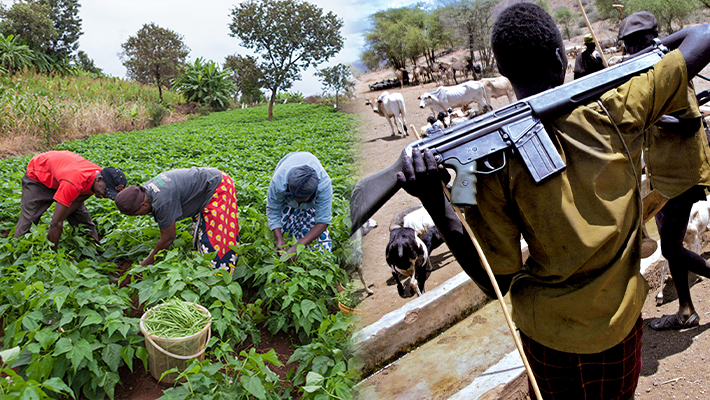A recurring decimal is the growing insecurity on our farms that is capable of causing extreme poverty, hunger and economic stagnation. The United Nations Children’s Education Fund (UNICEF) stated that 25 million Nigerians are at high risk of hunger; it is projected that 31.5 million citizens may face acute starvation mainly due to insecurity and other factors. With a population of 220 million, Nigeria’s food situation is to say the least, worrisome. UNICEF further alluded that these vulnerable people could face hunger that is linked to violence.
Last year, the Bola Tinubu administration declared a national emergency on food insecurity. Today, our farms are regularly attacked by gunmen and terrorists that kill, maim and steal produce and animals with little or no resistance by our security apparatus. Our hard-working women farmers are not spared. A number of these women are assaulted, kidnapped, raped and murdered. The World Bank had equally warned that citizens in seven states in the North-East and North-West would experience severe food shortages. In Kwara, Ekiti, Oyo, Plateau, Benue, Taraba and Kogi states, many farmers have abandoned their farmlands because of kidnapping and banditry.
In Niger and Kaduna states, bandits are known to collect tributes before farmers could undertake planting and harvesting while in other parts of the north, terrorists are reported to regularly behead farmers during rice harvest while nearby states are battling with fully-armed herdsmen over ownership of farmlands. Without adequate security in place, the nation would continue to be tormented by food shortages. From all indications, the strategies deployed by our law enforcement agents are not effective. Many security agents are fond of collecting levies and bribes from vehicles transporting food from the rural to urban centres; thus creating more problems for the agriculture value chain.

Therefore, a more drastic, impactful and result-oriented approach should be deployed to ensure that insecurity that is posing serious threats to farming in the country, is addressed. As a way forward, we advise that our security personnel should be given better training to match the superior power of the attackers, sophisticated equipment should be deployed for better surveillance, farmers should be insured against casualties while adequate compensations should be paid to victims. In addition, the security system is weak; it is logical to empower local communities to establish security outfits to foster a sense of ownership. More importantly, those found culpable of fueling insecurity should be punished within the ambit of the law.
FarmingFarmersFarms hereby calls on stakeholders to rise up to the challenge without further delay and save our country from collapse. There is an urgent need to curb the menace of insecurity to allow millions of displaced farmers to return to their farmlands. We need to reignite the lost culture of farming and make it a prospect that promotes life and prosperity. A vibrant agriculture sector remains the mainstay of a radiant economy by creating jobs, industrial raw materials, fostering innovation and ensuring stability required for national development.



